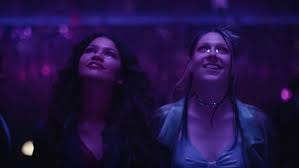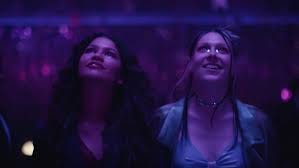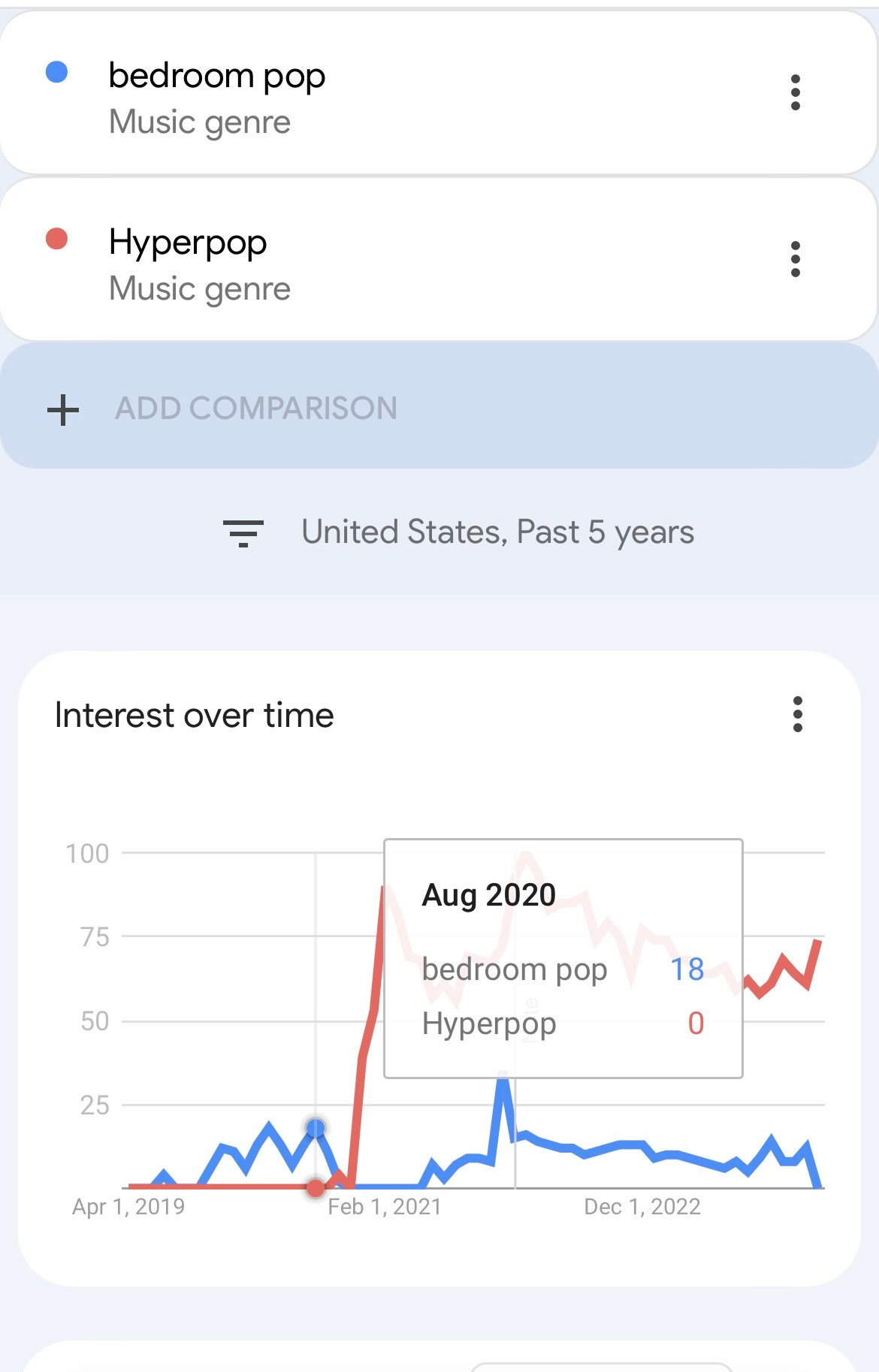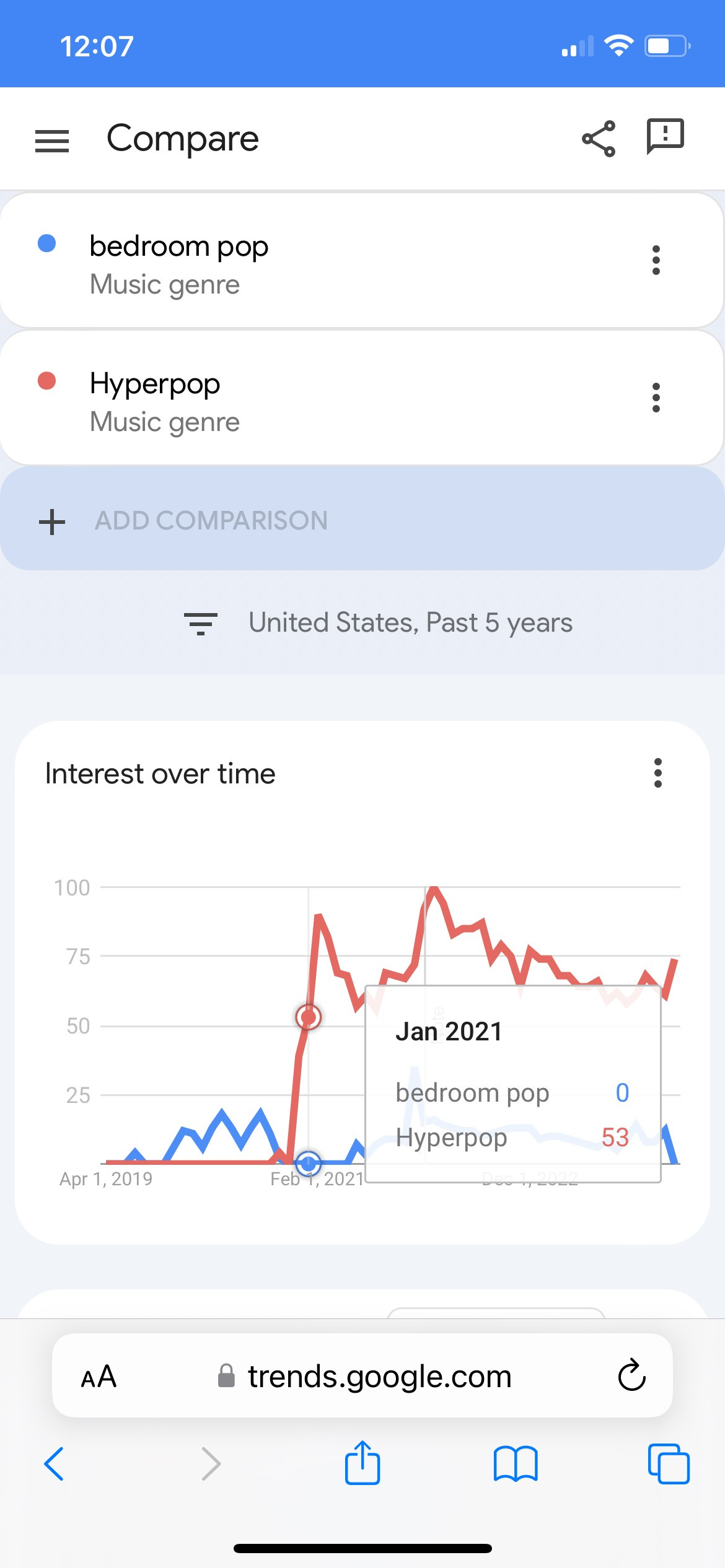(from the TV show Euphoria)
Those of you who have read my Substack for even a month have probably figured out that I have a knack for pronouncing the end of things. In the past eight months, I have looked at the death of postmodernism, the death of indie rock, the end of Dimes Square, the end of woke legacy media, the end of third places, and the death of pop culture. Now, it’s not like I have always been negative. I have also looked at relatively positive trends, such as the great refusal renaissance, the rise of anti-influencers and the return of media skepticism,
But these were all things I wrote about after the fact. It’s been a while since I bet on something that will flourish in the future. The last time was on July 22 of last year, when I predicted the rise of a new left that would end up coming to fruition.
Well folks, it’s time. As many of you know, I am a recovering addict (just hit six months clean last Friday) and what you may not know is that every addict deep down has the mind and heart of a gambler. A gambler makes a bet because they are chasing The Feeling. Since I am in recovery, I do not gamble or get high anymore. Even on here, I try not to place my chips anywhere unless it feels like a sure bet.
Well that moment has arrived. I can tell you, with confidence, what the music trend of the twenties will be.1
I will look at each music genre the way an Agatha Christie detective eliminates suspects. leaving the murderer for last.
Rock
Hahaha, I know. I would have never put this on my list, but a cool hunter that I respect — Sean Monahan — said in 2020 that it would make a comeback.
When the e-boy trend hits the mainstream press in summer 2019, everyone notes the 2000s nostalgia element. These kids are scenecore: channeling the emo Aughts, the MySpace era. There’s a lot of black, eyeliner, layering, stripes, band tees, pewter accessories, dangly skull earrings; crosses, padlocks, and swords hang from chains ranging from dainty to industrial. It‘s a rock aesthetic—just paired with hook-optimized trap and pop—at least on TikTok. Everyone has seemingly forgotten the genres that spawned the look: screamo and pop punk. Though this year, releases from musicians like Machine Gun Kelly make clear style is just running ahead of sound.
Fashion drives music trends, not vice versa.
Ah, but that’s where you stumbled, Sean. That’s true, but that’s not always true. Punk may have surfaced as a fashion statement before it did as a music genre. But the fedora revival of the ‘10s did not lead to a swing craze or a slew of Frank Sinatra wannabes on the charts. Make no mistake, many of the current songs that have been popular — especially those by Olivia Rodrigo — have had crunchy power chords. But saying that the presence of electric guitar in this decade means the revival of rock is like saying that the increased presence of organs in ‘60s music meant that church music was the genre of the decade, or like saying the increase of saxophone in ‘80s hits meant jazz was stronger than ever. Rock, you are free to go.
Rap
I don’t know if I would go so far as to say that rap is dead, but I don’t see how anyone can deny that rap’s health has started to decline. Joe Budden himself sees it. Now just because rap is declining, don’t mean nothing good will come from rap in this decade. The beginning of a genre’s decline is less bad news for listeners than it is for those who have designs to succeed in that genre (perhaps the only smart reason a musician may have to not label their music). So if you want to be a rapper, it may be a better idea to become a wedding DJ.
The listeners will be OK though. Jazz began its decline in the ‘60s, when John Coltrane released A Love Supreme and Miles Davis released Bitches Brew. Rock began its decline in the ‘90s, when Nirvana released Nevermind and Radiohead released OK Computer. How can it be said those genres were declining with masterpieces like that? Let’s compare. In the ‘50s, jazz was still the most respected form of contemporary music. Rock and roll was considered an idiotic, destructive, juvenile fad. In the early ‘60s, rock and roll was not only a fad, but one that was fading fast. It took the British Invasion to fully revive it commercially and Bob Dylan to elevate it above jazz as the most fascinating genre of contemporary music. Rock in the ‘80s meant titans like Bruce Springsteen and Guns N Roses. While Nevermind was the last great, commercially massive rock album, by the time OK Computer was released in 1997, rap was already the culturally dominant genre and the press was becoming more fascinated with electronica (that is what EDM was called in the late ‘90s).
So even though rap is starting to decline, expect some real genre-defining albums (or mixtapes) before the end of the decade.
Dance Pop
Look, no one is denying that dance pop will remain commercially successful. But its cultural dominance will fade. Dance pop2 was never more revered and elevated than it was in the 2010s. There was a truly bizarre moment when any music critic that dared give less than four stars to a Taylor or Beyonce album was considered an old, out-of-touch bigot.
That moment has thankfully passed. Ever since the great political schism between the youth and legacy media, it hasn’t been as easy for music critic hacks to appear simpatico with the tweetniks simply by showing Carly Rae Jepsen love. I would even say that, increasingly, we will see fans of dance pop in this decade the same way hippies saw fans of lounge music like Herb Alpert and the Tijuana Brass in the ‘60s. Whipped Cream and Other Delights was one of the biggest selling albums of the decade, but the boomer hippie directors and writers that ran (and, frankly, still run) Hollywood, decided to move such music to the diegetic background during any ‘60s period piece, rarely giving it needledrop status. So, yes, there will still be dance pop in this decade, but I predict it will be associated with basic, cringe squares (much like it was at the turn of this century).
EDM
EDM was never than it was in the 2010s. Avicci and David Guetta were names as recognizable as Nicki Minaj or Harry Styles. I wouldn’t necessarily call it THE trend of this decade, but I don’t think it will slow down either. If, for whatever reason, it does, I would still say it will never die. I say this because EDM is also a root genre!3 Much like the blues has been a remarkable soundtrack for the rise of industrial capitalism in America (or, more accurately, for those displaced by it), EDM has been a part of American (and global) culture from the first AOL instant message to our current dystopia. I would even say that EDM will probably be as integral to this decade as soul music was to the ‘60s (soul music itself being a root genre, since it’s a form of R&B). That said, the Trend of the Twenties is:
Hyperpop
I can hear some of you snickering. Perhaps you read the same Wikipedia entry I did, which said the following:
Questions concerning the potential decline of the microgenre, the corporate influences upon it, and the meaning of the 'hyperpop' name, began to be raised in 2021. Charli XCX, in August 2021, posted a tweet asking "rip hyperpop? discuss". In 2022, Dazed noted that since 2019, the word 'hyperpop' "has since become a catch-all phrase for any and all forms of extreme pop music," and that "sonically, you’d be hard pressed to find any internet-born music made in the last decade that hasn’t been retroactively brandished as hyperpop", also stating that "almost all of those given the label have grown disillusioned with the term, or grown irritated by its constraints." The same year, prominent hyperpop musician Glaive stated that he and Ericdoa were "working on killing" the movement, though three months later stated that it "will never die."He later stated that the packaging of the community within the name 'hyperpop' for profit led to its music becoming "algorithmic" over time. In June of 2023, PC Music announced that after that year, the label would not be releasing new music, instead turning to archival projects and special reissues. In September 2023 Underscores, another significant contributor to the microgenre, stated that it was "officially dead".
You caught me. I’m chasing The Feeling. Before you write this all off though consider the following: though none of the genre’s major artists are currently on Billboard, hyperpop producers are working overtime, meaning the sound is everywhere. Also, Charli XCX drops her highly anticipated album Brat this summer, which is supposed to be a return to the hyperpop direction she was exploring before Crash.
OK fine, what about “bedroom pop?” Doesn’t that playlist have more subscribers on Spotify than Hyperpop does? As of this writing, the Bedroom Pop playlist has 1,106,372 saves while Hyperpop has 432,618. I will counter you with a look at the Google Trends.
You are right, kids do not affect Google Trends. What kids are Googling their favorite genre of music? You know what kind of people do Google searches however? Music execs. A & R scouts. Cool hunters. Shitty Substack writers who go to 12-step meetings in sweatpants. These are the types of people who follow trends as if their lives depended on it. I say this is evidence that there is a lot of buzz about the genre.
Let’s look at bedroom pop’s peak:
2020. Of course 2020. When teenagers were trapped in their bedrooms because of lockdown. I mean I hardly worked from home and I myself was interested in bedroom pop at this time for this very reason. The idea that even from your depressing bedroom you can make a masterpiece.
When did hyperpop surpass bedroom pop?
2021, in case we forgot, was the year of the vibe shift. Which was when people slowly returned from lockdown to a different world (or city, since it was primarily felt by New York writers). We could say that hyperpop was the soundtrack of kids that really, really, really needed to go out dancing.
Hyperpop also best fits our dystopian times. My favorite hyperpop songs have a sound that I like to call the glitchcrunch.
0:21 to 0:23 in the video about is a good example of what I’m talking about. It sounds like actual rage against machines. Like kids smashing computers and burning 5G towers. Glitchcrunch will be to this decade what feedback was to the ‘60s.
The irony of hyperpop being the soundtrack of the techlash is as ironic as electric rock being the soundtrack of the nature-loving hippies of the ‘60s. What can I say? I told you I was gonna place a big bet, not resolve all contradictions I come across. Get ready for a long, strange trip everybody. Hope you don’t mind a speed drive.
I will not count country or Latin music. The latter has always been on and off the charts, going back to the jazz era. Latin music was never hotter or bigger than the Latin Explosion in 1999. Woe to those who were confident that Ricky Martin would rule the ‘00s. As for country, that is a what I call a “root genre,” which is what I call any genre that is a deeply traditional American genre. I would also consider the blues, folk music and R&B to be root genres, which is to say they will, like Latin music, continue to appear and disappear from the charts. To say that any root genre is dead would necessarily mean the United States has literally ceased to exist.
I am calling it “dance pop” but most people just call it “pop.” For a while, this was acceptable, but I think it’s wise to start considering that pop music did not always have the dance pop sound and that it will not always have that synth-pop aesthetic either. Before dance-pop, pop music was jazz based from the ‘40s to the early ‘60s, when pop transitioned to a more rock-based sound after The Beach Boys and The Beatles. In the ‘70s, there was a massive decline in pop and top 40 radio, with rock being practically all there was. In the ‘80s, Michael Jackson, Prince and Madonna ushered in the era of dance pop, which was so rooted in disco it probably would be called “disco pop” today if it wasn’t for its decade-long backlash.
Please refer to footnote #1 above.








Fascinating take.
Very fascinating take. After reading this on Sunday morning I spent a good part of the day listening to some hyperpop, and . . . I'm diggin' it, I think you've got your finger on the pulse and I would not at all be surprised to see your prediction come true.
I was listening to a user-created spotify playlist called "hyperpop / glitchcore / scenecore." Some things that immediately stuck out at me on this playlist was the general tone of paranoia and dissapointed expectations; is this common in the genre? Because if so it would align precisely with your analysis of why the genre rose to prominence. I believe we will see a lot of Gen Z inhabiting a space of coming to terms with the world as given to them by generations before—like you said, art of the techlash. I sympathize with Mr Raven above who says the genre is narrow, and might I suggest the genre broadens on scope of we consider it to be allied, in some way, with vaporwave? If I'd been asked to name the great genre of the 20s I would have said vaporwave; there's still a lot of promise in it in my opinion. Hyperpop and vaporwave almost seem like two sides of the same coin; both are entranced by the current state of affairs as informed by a historical perspective. How about this: vaporwave is what gen Z is saying publicly to Millennials about the world the Millennials gave to them; hyperpop is what Gen Z is saying about that world amongst themselves, privately. However all this analysis is only based off about two hours' worth of listening to one playlist so I might not really have a handle on what's going on.
Also, I agree with your analysis of rock, rap, and "root genres." It's telling to me that the "edgy" rock stations are still playing Nevermind. As to your theory of genres beginning to fizzle out right when their greatest artistic productions are created . . . yeah, I'll go with that. Perhaps a genre attracts attention from musicians when it is new because it presents itself as an artistic / aesthetic problem, only for that attention to wane once masterpieces get created and the genre is "solved."